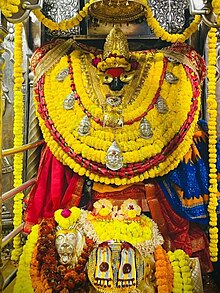Exploring the Core Beliefs: An Introduction to Hindu Philosophy
[ad_1]
Hindu philosophy is a vast and complex tapestry, interwoven with a rich history that spans thousands of years. It encompasses a diverse array of beliefs, practices, and traditions, making it one of the oldest and most enduring philosophical systems in the world. At its core, Hindu philosophy invites individuals to explore fundamental questions about existence, purpose, and the nature of reality. This article provides an overview of the key concepts and beliefs that form the foundation of Hindu philosophical thought.
The Historical Context
Hindu philosophy emerged in the Indian subcontinent, where it developed through a series of texts, oral traditions, and cultural practices. The Vedas, the oldest sacred texts of Hinduism, establish the foundation for philosophical inquiry. Composed around 1500–500 BCE, the Upanishads—philosophical writings stemming from the Vedic texts—marked a pivotal moment in the evolution of Hindu thought. They explore concepts such as Brahman (the ultimate reality) and Atman (the individual soul), laying the groundwork for subsequent philosophical systems.
The Concept of Dharma
Central to Hindu philosophy is the notion of dharma, often translated as "duty," "righteousness," or "law." Dharma is a multifaceted concept that encompasses ethics, social order, and personal conduct. Each individual’s dharma varies based on their position in society, age, and circumstances. This emphasis on duty reflects the belief that fulfilling one’s responsibilities contributes to the larger harmony of the universe. Adhering to dharma is seen as essential for spiritual growth and societal stability.
Karma and Reincarnation
Another foundational belief in Hindu philosophy is the law of karma, which posits that every action has consequences. Good deeds generate positive karma, leading to favorable outcomes, while negative actions result in adverse experiences. This principle accounts for the notion of samsara, the cycle of birth, death, and rebirth. Hindus believe that one’s past actions influence their current life and future incarnations, creating a continuous cycle of evolution toward spiritual liberation.
The Pursuit of Moksha
The ultimate goal in Hindu philosophy is moksha, or liberation from the cycle of samsara. Moksha represents a state of self-realization where the individual recognizes their true nature as Atman, which is fundamentally one with Brahman. This realization leads to freedom from suffering and the illusions of the material world. The paths to achieving moksha are varied and can include practices such as meditation, devotion (bhakti), knowledge (jnana), and righteous action (karma yoga).
Different Philosophical Schools
Hindu philosophy is characterized by several schools of thought, each offering distinct perspectives on metaphysical questions. The six orthodox (Astika) schools include:
-
Vedanta: Focuses on the nature of the self (Atman) and its relationship with the ultimate reality (Brahman). Non-dualist Vedanta posits that the two are ultimately one, while dualist Vedanta maintains a distinction between them.
-
Sankhya: A dualistic system that separates consciousness (purusha) from matter (prakriti). It outlines the nature of reality as comprising these two fundamental elements.
-
Yoga: Examines the pathways of spiritual practice and discipline to achieve self-realization. It encompasses various methods, including physical postures (asanas), breath control (pranayama), and meditation.
-
Nyaya: A school of logic that emphasizes reasoning and epistemology. It seeks to establish valid means of knowledge (pramanas) and the processes of inference.
-
Vaisheshika: A metaphysical system focused on categorizing and analyzing the nature of existence. It proposes a classification of reality into categories such as substance, quality, and action.
- Purva Mimamsa: Primarily concerned with the rituals and ethical responsibilities outlined in the Vedas, emphasizing the importance of dharma and righteous action over metaphysical speculation.
Conclusion
Hindu philosophy embodies a profound exploration of life’s fundamental questions, emphasizing the interconnectedness of all existence and the importance of personal spiritual development. By studying its core beliefs—dharma, karma, reincarnation, and moksha—one can gain insights into the nature of reality and the human experience. As one of the world’s oldest philosophical traditions, Hindu thought continues to offer valuable perspectives on ethics, spirituality, and the pursuit of truth in a rapidly changing world. Whether through contemplation, scholarly study, or personal practice, the wisdom of Hindu philosophy invites individuals to embark on a transformative journey of self-discovery and understanding.
[ad_2]






